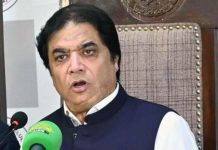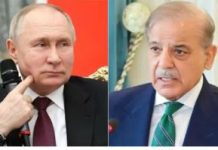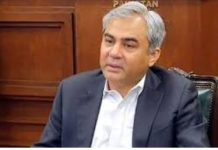Chief Justice Gulzar Ahmed has given the federal government four weeks to submit its reply on the inquiry report on the APS Peshawar Attack case.
Over 140 children and school staffers were gunned down in an attack on an army-run school in Peshawar on December 16, 2014. The attack was claimed by the outlawed Tehreek-e-Taliban Pakistan.
A two-member bench of the Supreme Court, comprising Justice Gulzar Ahmed and Justice Ijazul Ahsan, took suo motu notice in the case after an inquiry commission submitted its report to the court.
The hearing started with the parents of the martyred children requesting the court to increase the pace of investigations. Justice Ahmed regretted the delay and assured the parents that justice will be served.
The parents also requested the inquiry report of the attack be made public. The terrorists involved in the attack have been punished but their facilitators should also be punished, they said.
On this, Justice Ahsan consoled the parents and promised them that justice will be dispensed to them.
The attorney general has been summoned in person at the next hearing after taking legal advice from the government in the case. The bench announced that the proceedings in the case will be taken forward only after a response from the attorney general is received. The next hearing has, therefore, been postponed for four weeks.
In July, the judicial commission formed to investigate the attack had submitted a 3,000-page inquiry report in the court. It consisted statements of 101 witnesses and 31 police and other officials of law enforcement agencies. The report was prepared by Justice Muhammad Ibrahim Khan of the Peshawar High Court.
In October 2018, Supreme Court’s former chief justice Saqib Nisar had set up a one-man commission headed by Justice Khan. The commission was made after the parents of children demanded the authorities form a high-level inquiry commission to investigate the massacre.
Pakistan hanged four men in December, 2015 for their involvement in the attack on the army-run school. They were convicted by a military court and their death sentences were confirmed by the then army chief.











